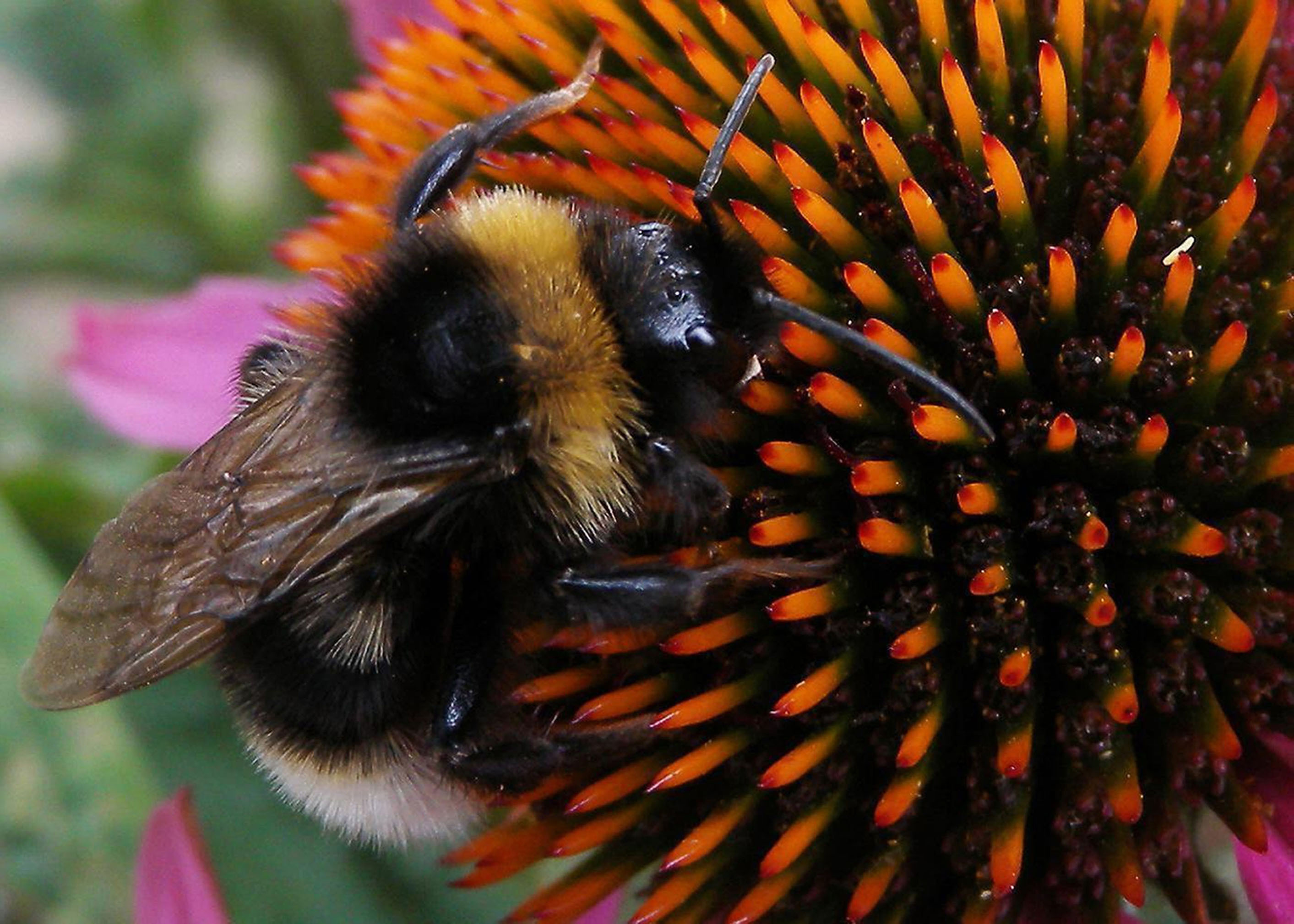Scotland’s bumblebees are on the fritz say researchers at Stirling University, with controversial pesticides causing them to lose their buzz.
The vibration enables them to pollinate key commercial crops and could in time have an impact on foodstuffs such as tomatoes and even the humble potato.
In fact, the university’s study believes the pesticide – known as neonicotinoids – are stunting the brains of the insects and damaging their ability to produce their trademark buzzing.
The preliminary findings of the Scottish study will be presented to the British Ecological Society’s annual meeting in Liverpool today.
It is expected to add weight to calls for a wider ban on neonicotinoids. In 2013, the EU issued a moratorium limiting use of three varieties.
In standard forms of pollination, bees collect pollen by simply brushing it off plants’ anthers but buzz pollinated plants – including crops such as tomatoes, potatoes and aubergines – guard their pollen inside the anther and release it through small pores in the tip.
“Bees produce a vibration – or buzz – to shake pollen out of the anther like a pepper pot,” said Stirling University’s Dr Penelope Whitehorn.
“The bee lands on a flower, curls her body around the anther and grips the base with her mandibles.
“She then rapidly contracts the flight muscles to produce the vibration, without beating her wings.”
Because buzz pollination requires a complex set of behaviours, Dr Whitehorn wanted to find out whether it was affected by neonicotinoids.
She split a bumblebee colony into three groups of workers and fed them different field-realistic doses of the neonicotinoid thiamethoxam.
She then measured how much pollen these bees collected from flowers in a lab setting, recording their buzzes to analyse the acoustic properties.
The results revealed that learning is key to buzz pollination and that the more bumblebees practice, the more pollen they collect over time.
The study also showed that bumblebees fed field-relevant doses of thiamethoxam did not collect more pollen over time, suggesting the insecticide was affecting their ability to learn.
Dr Whitehorn warned: “The study adds to the now large body of evidence from lab and field-based studies that neonicotinoids reduce learning and memory in bees, impair their communication, foraging efficiency and immune systems and, crucially, reduce their reproductive success as well as the pollination services that they can provide.
“These chemicals do have serious implications for wild bee populations in agricultural landscapes but some, notably from the agrochemical industry, still promote their use.”











